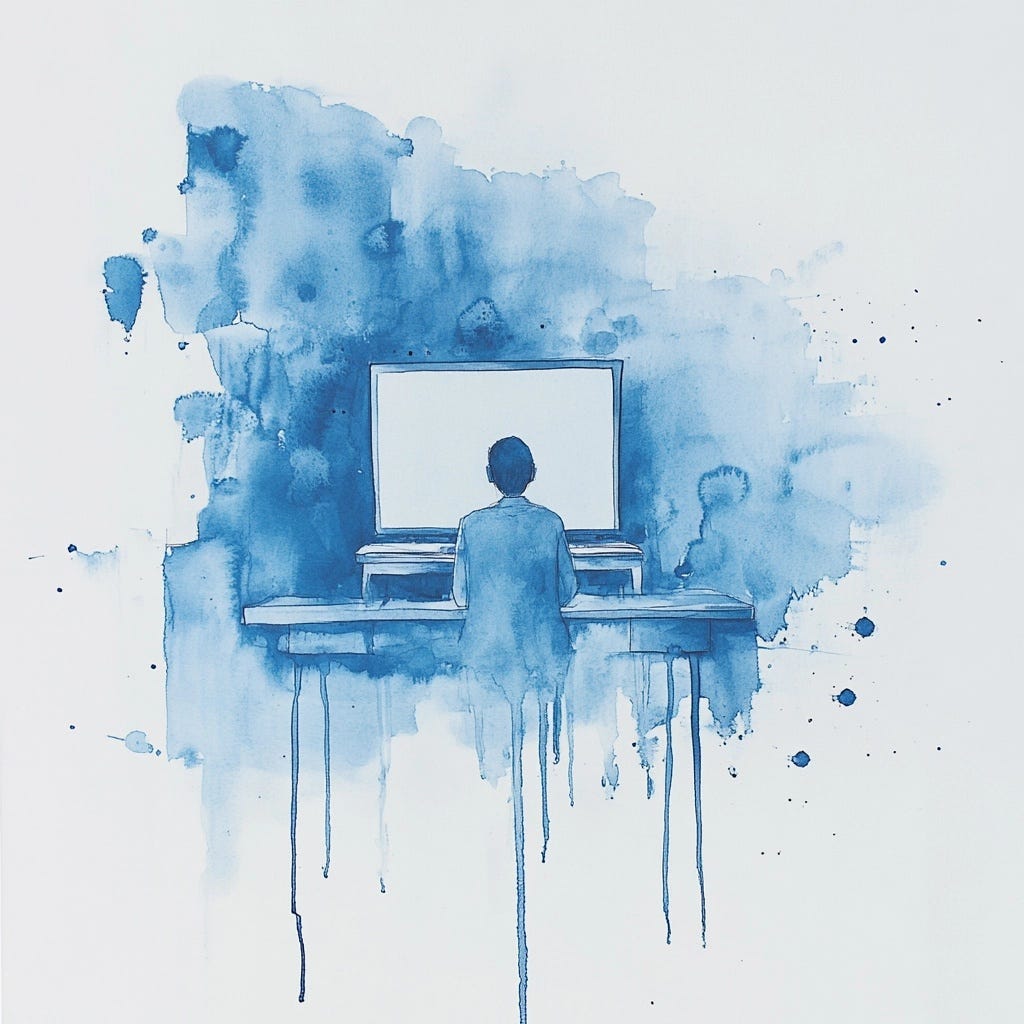I was in a store the other day. A child, no taller than three apples, paused in front of a large mirror. He reached out, fascinated by his reflection. He moved, and the reflection moved. Intrigued, he then decided to walk around the mirror, as if trying to see what was behind it
We are all that child, captivated by what lies behind the curtain.
Marketing understands this instinctively. It pulls back the veil, reveals the secrets, humanizes the brand. Truth, carefully staged. The illusion of privileged access.
But why such fascination? Because deep down, we sense that what matters most is always hidden behind what we see.
But in a world saturated with screens… what's left to see behind them, when we're already swallowed whole?
We once saw a screen as a surface through which we observed the world. But today, it functions more like a two-way mirror: we don’t just look at the screen, we are being looked at through it.
Every movement, every click is captured, analyzed, monetized.
Perhaps this is why anxiety is on the rise. The feeling of being constantly watched has become so familiar that it even seeps into our refrains and TikTok trends: 'Somebody’s watching me, it’s my anxiety.' (Blessed are those who’ve severed ties with social media. For the rest, here’s a reminder in sound and image.) As if naming the anxiety were enough to keep it at bay.
Because, of course, we’ve perfectly identified the problem: surveillance, algorithms tracking us, the illusion of choice in an ocean of pre-digested content.
And yet, we keep dancing. As if all of this hasn't already tipped over.
The truth is, the threat is no longer the same.
With LLMs and generative AI, we are no longer just watched spectators. We are being shaped by systems whose creators themselves admit they don’t fully understand.
AI no longer just reflects us: it reformulates us.
We thought we were in dialogue with the machine? We might be becoming its syntax.
And what does this algorithmic mirror reflect? A recomposed image, a digital trompe-l’œil that traps us in pre-built narratives.
The more we try to think deeply, the more we're forced to step outside the frame it imposes on us.
We want to lift the curtain, but today, there are no backstage spaces left. Just an endless stage with no exit.
We once knew the two-way mirror, but now we’ve become the mirror without the reflection. We’ve lost our image. We no longer see ourselves; we’re being consumed.
Is there a way out? Perhaps.
If we've lost our reflection, we must stop searching for it. Look elsewhere. Not behind, but within.
Expressionism revealed what the world did to us.
Impressionism, how we felt about it.
Selfpressionism, delves into the worlds within us — those that may have never had a voice, yet.
Here’s where generative AI comes into play: as a tool for expression, not self-editing.
MD





Hi Marie, Apologies for writing this here. I understand this might not be the best place.
I'm working on a product called Quri, a specialised voice agent for newsletter consumption and would love to share about it with you and get your thoughts on it given your expertise.
If it helps I can share the product walkthrough video as well. But yeah, your support would be really valuable and I'd be super grateful. Kindly let me know if we could chat. 😊🤌🏻